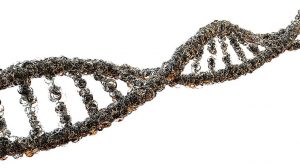Definition
noun, plural: corticototrophs
The cell in the anterior pituitary that particularly releases adrenocorticotropic hormone (ACTH), melanocyte-stimulating hormone (MSH), and lipotropin
Supplement
The pituitary gland is the master endocrine gland of the endocrine system. It is responsible for the production and the release of different hormones that regulate various physiological processes. The pituitary gland is comprised of the anterior and the posterior pituitaries bordered by pars intermedia. The anterior pituitary is the glandular portion and release hormones that regulate growth, reproduction, lactation, and stress. There are about five types of hormone-secreting cells in the anterior pituitary classified based on the hormones that they produce and secrete: (1) somatotrophs, (2) corticotrophs, (3) thyrotrophs, (4) gonadotrophs, and (5) lactotrophs.
Corticotrophs are the cells in the anterior pituitary that release adrenocorticotropic hormone (ACTH), melanocyte-stimulating hormone (MSH), and lipotropin. They constitute about 20% of the anterior pituitary cells.
Corticotrophs release ACTH (also called corticotropin) in response to corticotropin releasing hormone (CRH) produced by the neurosecretory cells of the hypothalamus and secreted via the hypophyseal portal system. The ACTH stimulates the adrenal gland to secrete glucocorticoids, MSH, mineralocorticoid, and androgens.
Also called:
- corticotropic cell
- corticotrope
See also:







